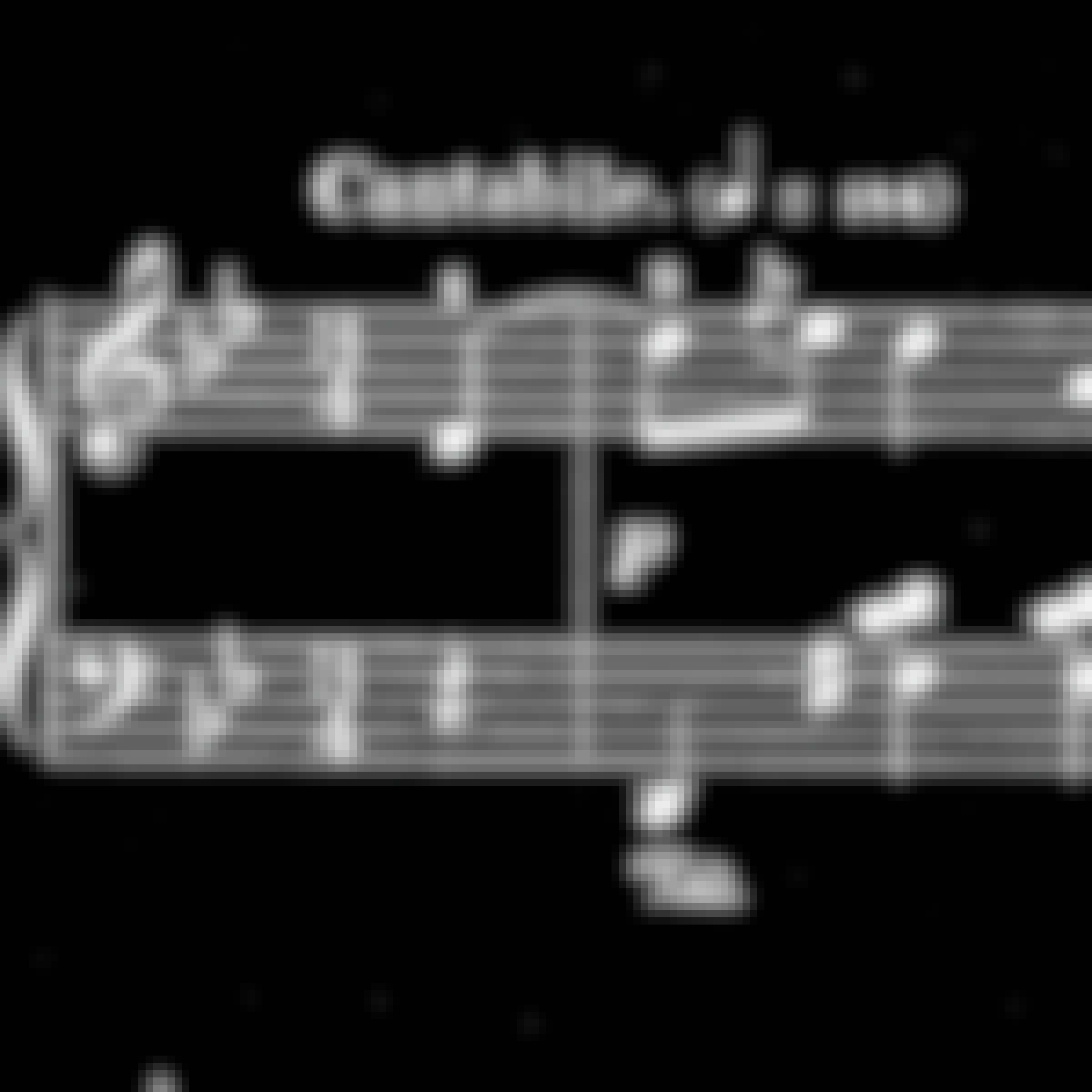Filter by
SubjectRequired
LanguageRequired
The language used throughout the course, in both instruction and assessments.
Learning ProductRequired
LevelRequired
DurationRequired
SkillsRequired
SubtitlesRequired
EducatorRequired
Explore the Classical Music Course Catalog

Yale University
Skills you'll gain: Classical Music, Music History, Music, Music Theory, Instrumental Music, Musical Composition, Art History

Duke University
Skills you'll gain: Music, Music Theory, Aesthetics, World Music, Cultural Diversity, Psychology, Anatomy, Biology, Neurology
 Status: NewStatus: Free Trial
Status: NewStatus: Free TrialBoard Infinity
Skills you'll gain: Business Reporting, SAP Applications, Debugging, Object Oriented Design, Programming Principles, UI Components, Development Environment, Report Writing, Object Oriented Programming (OOP), Program Development, Interactive Design, Eclipse (Software), Business Logic, Development Testing, Computer Programming Tools, Data Entry, Maintainability, Transaction Processing, Data Structures

The University of Edinburgh
Skills you'll gain: Music Theory, Music, Classical Music, Musical Composition

Yale University
Skills you'll gain: Aesthetics, Music History, Liberal Arts, Music, Social Justice, Performing Arts, Social Studies, Pedagogy, Public Affairs, Cultural Diversity, Socioeconomics, Community Development, Classical Music
 Status: Free Trial
Status: Free TrialBerklee
Skills you'll gain: Musical Composition, Music Theory, Peer Review, Music, Music Performance, Instrumental Music, Creativity
What brings you to Coursera today?

Michigan State University
Skills you'll gain: Music Theory, Music, Musical Composition, Classical Music
 Status: NewStatus: Free Trial
Status: NewStatus: Free TrialSkills you'll gain: Music, Musical Composition, Music Theory, Peer Review, Music Performance, Active Listening, Storytelling, Post-Production, Constructive Feedback, Editing, Performing Arts, Media Production, Performance Tuning, Self-Awareness, Creativity

The Hong Kong University of Science and Technology
Skills you'll gain: Musical Composition, Music Theory, Music, Music History, Classical Music, Creativity
 Status: Free Trial
Status: Free TrialBerklee
Skills you'll gain: Music Theory, Musical Composition, Music, Instrumental Music, Music Performance

University of Amsterdam
Skills you'll gain: Sociology, Social Studies, Social Sciences, Socioeconomics, Culture, Political Sciences, Economics, Qualitative Research, Research Methodologies

California Institute of the Arts
Skills you'll gain: Music Theory, Music, Musical Composition, Classical Music, Music History, Instrumental Music, Music Performance, World Music
Classical Music learners also search
In summary, here are 10 of our most popular classical music courses
- Introduction to Classical Music: Yale University
- Music as Biology: What We Like to Hear and Why: Duke University
- ABAP Fundamentals and Core Programming Concepts: Board Infinity
- Fundamentals of Music Theory: The University of Edinburgh
- Music and Social Action: Yale University
- Developing Your Musicianship: Berklee
- Getting Started With Music Theory: Michigan State University
- Writing and Producing Music in Your Home Studio: Berklee
- Intimacy of Creativity: Entering the Minds of Composers: The Hong Kong University of Science and Technology
- Developing Your Musicianship: Berklee










